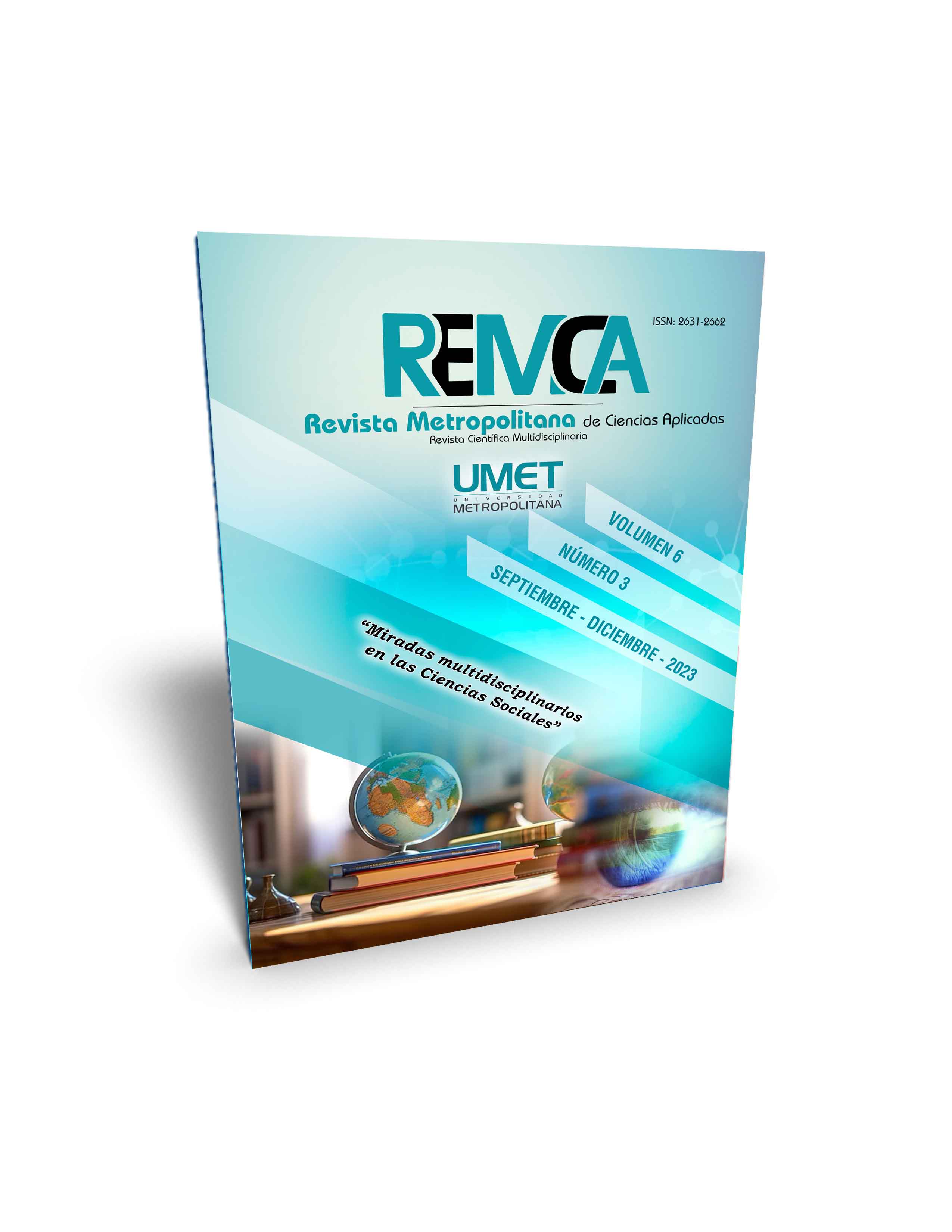Biodiversity to guarantee the sustainable development of fundamental species on Jambelí Island, Ecuador
DOI:
https://doi.org/10.62452/9eq29827Keywords:
Sustainable development, social development, bioethics, biodiversity conservation, ecosystem lossAbstract
The work was carried out on Jambelí Island, Jambelí Archipelago located in the Santa Rosa canton, El Oro province in Ecuador, the objective of the research was to determine the main anthropic activities through scientific research for the correct social development and conservation of biodiversity. The fieldwork allowed us to know the main activities carried out by its community members to generate sources of work in the place, determining that tourism and the collection of fauna species for sale are common activities among the inhabitants. Although it is a large natural space and important for the environment, conservation is in danger because shrimp farming in the place has triggered a large number of problems for the community members, affecting their proper social development, and causing unfortunate damage to the place. Sustainable social development through bioethics seeks to generate a change in people's awareness to respect life and care for the environment, to achieve a positive impact, mainly benefiting the inhabitants since well-preserved resources create a bridge to a better future. With the study we want to highlight the importance of social development and sustainable development, promoting it from bioethics and achieving the conservation of the habitat of many species that are being lost and that are essential for the food chain and the economic livelihood of many families.
Downloads
References
Bermúdez, G. M., & De Longhi, A. L. (2015). Desafíos para la enseñanza de la biodiversidad. Revista de Educación en Biología, 18(2), 86–88.
Bórquez Polloni, B., & Lopicich, B. (2017). La dimensión bioética de los Objetivos de Desarrollo Sostenible (ODS). Revista De Bioética Y Derecho, (41), 121–139.
Cantú-Martínez, P. C. (2019). La apreciación semántica de la noción desafíos en bioética por alumnos universitarios del campo de las Ciencias Biológicas. Revista Iberoamericana De Bioética, (10), 1–11.
Córdoba. Bórquez, B., & Lopicich, B. (2017). La dimensión bioética de los Objetivos de Desarrollo Sostenible. Revista de Bioética y Derecho (41), 121-139.
Domínguez Junco, D. C. O., Burgos Bencomo, M. O., & Fadul Noblecilla, M. S. (2016). Alternativa de agricultura orgánica y potencialidades turísticas. Caso: Isla Costa Rica del archipiélago Jambelí, provincia El Oro, Ecuador. Universidad Y Sociedad, 8(3 (E).
Ecuador Ministerio de Acuacultura y Pesca. (2018). Acuicultura y Pesca. MAGAP. http://content/uploads/downloads/2018/08/AGREEMENT-005.pdf
Ecuador. Asamblea Nacional Constituyente. (2008). Constitución de la República del Ecuador. Registro Oficial 449. https://www.oas.org/juridico/pdfs/mesicic4_ecu_const.pdf.
Ecuador. Ministerio de Medio Ambiente. (2017). Código Orgánico del Medio Ambiente. https://www.ambiente.gob.ec/wp-content/uploads/downloads/2018/01/CODIGO_ORGANICO_AMBIENTE.pdf
Estrada, G., Sánchez, V., & Gómez, A. (2018). Bioética y desarrollo sostenible: entre el biocentrismo y el antropocentrismo y su sesgo económico. ClioAmerica, 12(24), 219-231.
Gómez, D. (2020). Metabolismo social y bioético. Un diálogo de saberes. Revista Iberoamericana de Bioética, (12), 1-11.
Heinzmann, M., & Fonti, D. (2014). Bioética Social: Un aporte de la Bioética a las controversias socioambientales. Revista de problemas de población y sociedad, 4(4), 63-72.
Leal, A. P. (2017). Análisis bioético de los conflictos socioambientales en la generación de energía para la construcción de centrales hidroeléctricas en el contexto colombiano. (Tesis de Maestría). Pontificia Universidad Javeriana.
López, I., Arizaga, A., & Pardo, M. (2018). La dimensión social del concepto de desarrollo sostenible: ¿El eterno olvido? Revista Española de Sociología (RES), 27(1).
Luna-Nemecio, J. (2019). La importancia de la educación para lograr un desarrollo social sostenible. Ecociencia Revista Internacional, 1(1), 6-11.
Orellana, J., & Lalvay, T. (2018). Uso e importancia de los recursos naturales y su impacto en el desarrollo turístico. Caso del cantón Chilla, El Oro, Ecuador. Revista Interamericana de Medio Ambiente y Turismo, 14(1).
Organización de las Naciones Unidas para la Educación, la Ciencia y la Cultura. (2005). Declaración Universal sobre Bioética y Derechos Humanos. Declaración universal. http://portal.unesco.org/es/ev.php-URL_ID=31058&URL_DO=DO_TOPIC&URL_SECTION=201.html
Sanz, V. C. (2019). La ética ambiental en la humanidad futura: de la bioética al bioderecho. Ciudad de México, México: Fondo editorial de Nuevo León.
Torres, J., Seoane, J., Cogalniceanu, D., Maza, F., & Aguirre, N. (2018). Aves comunes de la isla Jmabeli (Ecuador). Revista de Biodiversidad Neotropical, 8(1), 55-62.
Zárate, A. J., Cuesta, J., & Arias, J. N. (2020). El estudio de la bioética ambiental para todos los niveles educativos y su importancia en la gobernabilidad colombiana. Bolígrafo Educativo, 26(2), 127-144.
Downloads
Published
Issue
Section
License
Copyright (c) 2023 Juriko Nathaly Nagua-Díaz, Rigoberto Miguel García-Batista, Mauricio Pavel Guanuche-Granda (Autor/a)

This work is licensed under a Creative Commons Attribution-NonCommercial-ShareAlike 4.0 International License.
Authors who publish in Revista Metropolitana de Ciencias Aplicadas (REMCA), agree to the following terms:
1. Copyright
Authors retain unrestricted copyright to their work. Authors grant the journal the right of first publication. To this end, they assign the journal non-exclusive exploitation rights (reproduction, distribution, public communication, and transformation). Authors may enter into additional agreements for the non-exclusive distribution of the version of the work published in the journal, provided that acknowledgment of its initial publication in this journal is given.
© The authors.
2. License
The articles are published in the journal under the Creative Commons Attribution-NonCommercial-ShareAlike 4.0 International License (CC BY-NC-SA 4.0). The terms can be found at: https://creativecommons.org/licenses/by-nc-sa/4.0/deed.en
This license allows:
- Sharing: Copying and redistributing the material in any medium or format.
- Adapting: Remixing, transforming, and building upon the material.
Under the following terms:
- Attribution: You must give appropriate credit, provide a link to the license, and indicate if any changes were made. You may do this in any reasonable manner, but not in any way that suggests the licensor endorses or sponsors your use.
- NonCommercial: You may not use the material for commercial purposes.
- ShareAlike: If you remix, transform, or build upon the material, you must distribute your creation under the same license as the original work.
There are no additional restrictions. You may not apply legal terms or technological measures that legally restrict others from doing anything the license permits.




